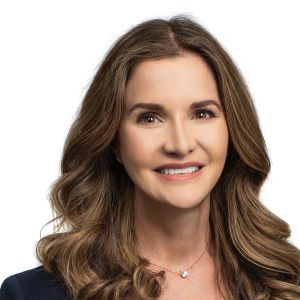Australian superannuation trustees face challenges ranging from regulation to tech resilience, requiring them to stay informed, adapt, and refine practices to deliver the best member outcomes. BlackRock’s LOUISA ROBERTS, Head of Aladdin Client Engagement (Australia & New Zealand) writes that prioritising members’ retirement goals requires a unified technology platform, integrating all investment processes through a common data language for optimal results.
Like their global peers, Australian superannuation trustees face a range of challenges in the current landscape—from regulation and retirement outcomes to operational and tech resilience. These challenges require trustees to stay informed, adapt to change, and continuously improve their practices, processes and platforms to deliver the best outcomes for their members.
Putting members’ interests first to achieve the best financial position for retirement requires a technology platform that unifies all aspects of the investment process through a common data language.
Aladdin®, through the eFront® platform, has helped funds like AustralianSuper to understand their full data story, manage that data at scale, and bring together private and public data.
“It’s all about getting the right information to the investment teams at the right time, enabling them to make the decisions they need to make about fund allocation and what’s going on in the market,” said Peter Curtis, Chief Operating Officer of AustralianSuper. “So, technology is critical for us in leveraging the data that’s available, allowing our teams to run simulations around risk and returns when they’re developing quantitative investment strategies and support where we are allocating the money.”
AustralianSuper has also faced an additional layer of complexity—as a firm that entered the ESG space early on—and has turned to tech to help navigate the changing environment.
“We very much see ESG as another set of risks, which we need to manage, to protect our members’ assets and enhance the value of those assets. So ESG for us is very much integrated into the investment process as a critical element of what we do,” Curtis said.
“A few years ago, we started to develop what we call our “asset-owner policy”—which sets out what companies should expect from us when they see us turn up on the register of those whose stocks we hold,” he continued. “And that’s whether it’s a listed investment or an unlisted investment within the portfolio. So, we engage actively with our companies that we invest in. We talk to them about the whole range of ESG issues and incorporate a number of ESG factors in our due diligence processes for our investments in private markets. And we’ve had situations where we will engage with companies to get improved outcomes for the assets that we hold within the portfolio.”
Looking ahead, AustralianSuper is eyeing expansion.
“We’re expanding our global footprint, and it’s very much about building out those global offices and finding the opportunities to deploy the capital for our members,” Curtis said. “So, it’s a very exciting outlook for us. The world continues to be an exciting place to be, and we’re looking for the best investment opportunities for our members’ assets.”
It all starts with data
Fundamentally, super funds cannot adequately understand their investment risk without understanding their data. Those two things come together in the whole portfolio, along with more complex instruments and emerging technologies from many diverse sources. Getting the data story right is becoming increasingly challenging for super funds to manage on their own. And ultimately, the funds’ success is going to be driven by their ability to navigate very complex data sets.
This can lead to time-consuming and manual workflows that ultimately put additional strain on already stretched resources and budgets. Having a tech platform that unifies the investment management process through a common data language can alleviate these strains and help investors take advantage of emerging technologies like generative AI.
Whether they’re investing in or managing public assets, private assets, or even digital assets—super funds must be focused on the broader data story in their portfolios and across their investment management teams.
In the not-too-distant past, super funds were able to focus on investing, while the data management side of the equation was considered a support function. However, today the world is more complex, more interconnected, and more data-forward. This means that a super fund needs to be an expert at data management too.
So, how can tech help super funds navigate change?
- A unified platform
As capital markets evolve, and allocations in private markets increase, access to granular, accurate data is essential to making informed investment decisions. Whether managing assets in-house, overseeing third-party managers, or both, super funds benefit from a platform like Aladdin that gives a single, consolidated view of the whole portfolio.
- Real-time data
Pensions are increasingly reliant on their technology ecosystems to navigate industry, market, and data challenges—so that plans and funds can achieve unique investment outcomes for their members and beneficiaries. Clients can access a real-time investment book of record (IBOR) covering the entire investment management process and accurately view risk across internally and externally managed assets with automated, reliable data for analysis, oversight, and management needs.
- Continuous innovation
In this new era of big data, advanced compute power, and generative AI, institutional investors are looking to do more with fewer tech providers. And to level-up, firms are looking for innovative (and intuitive) tools that can be rapidly adopted—all while ensuring productivity, efficiency, and sound governance. Through generative AI, Aladdin Copilot serves to strengthen the connective tissue across the Aladdin platform, surfacing answers instantly to support key business decisions, unlocking new efficiencies, and uncovering actionable information faster.
Learn more about how Aladdin is unifying the investment management process: https://www.blackrock.com/aladdin/industry-segments/pensions
BlackRock’s Aladdin® and eFront® platforms are financial technology platforms designed for institutional use only and are not intended for end investor use.




































